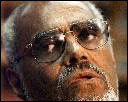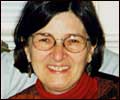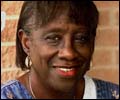 |
 story | selected interviews | slideshow | |||||||
|
Selected Interviews John Biewen and co-producer Kate Cavett interviewed Freedom Summer veterans in 1994. |
|||||||
| Bob Moses The debate raged, and I guess it still rages. You know, it's one of the central issues around race in the country.  So at that time the debate raged about whether this project, which was sort of moving along and gathering some strength in developing some leadership among young black people, should threaten that with an enormous influx of young college white students. It's not a debate that gets settled because of some rational argument, in which this person convinces some other people that - the issues really lie so much deeper in the emotional feeling dimension of people. Read the interview |
Betty Garman Robinson I can remember the emotions of the incredible excitement, enthusiasm, and feeling that we were really on the front line, that this was going to change the way that America thought about ... you know, that we were going to demonstrate the moral rightness of African Americans in Mississippi having the right to vote, the right to dignity, the right to be part of American society. Read the interview |
Bob Zellner I had a typical upbringing, I suppose, in the South. Only there was one main difference and that was that my father, unlike his brothers and his father, and his father, had broken with the Klan. So that as I grew up I didn't get, in my family itself, the type of racist teaching that was more or less automatic for white Southerners.  Read the interview |
Unita Blackwell I guess I was born in it, you know, I was born in the movement. The day I was born, I was born black. So, all my life I knew something was wrong with the way that people perceived me as a black person.  And even our own people were always cautious of white people and that kind of thing, because I was born in the Mississippi Delta. Read the interview |
||||